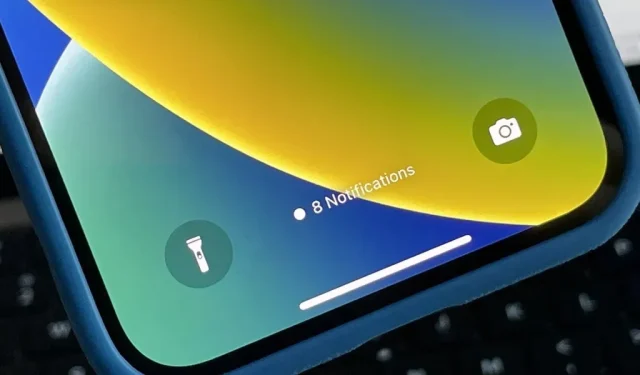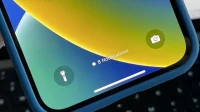You probably get a huge amount of notifications on your iPhone every day – maybe even every hour – which can quickly clutter up your lock screen. With Apple focusing on lock screen customization in iOS 16, there are now options that can reduce the screen space taken up by lock screen notifications, giving you more space to enjoy all your different wallpapers.
In iOS 16, there are three ways to display alerts on the lock screen on your iPhone. The former is very similar to iOS 15, while the latter offers a new, concise look. The third one is even more concise, showing only the number of new notifications, but doesn’t show what they are.
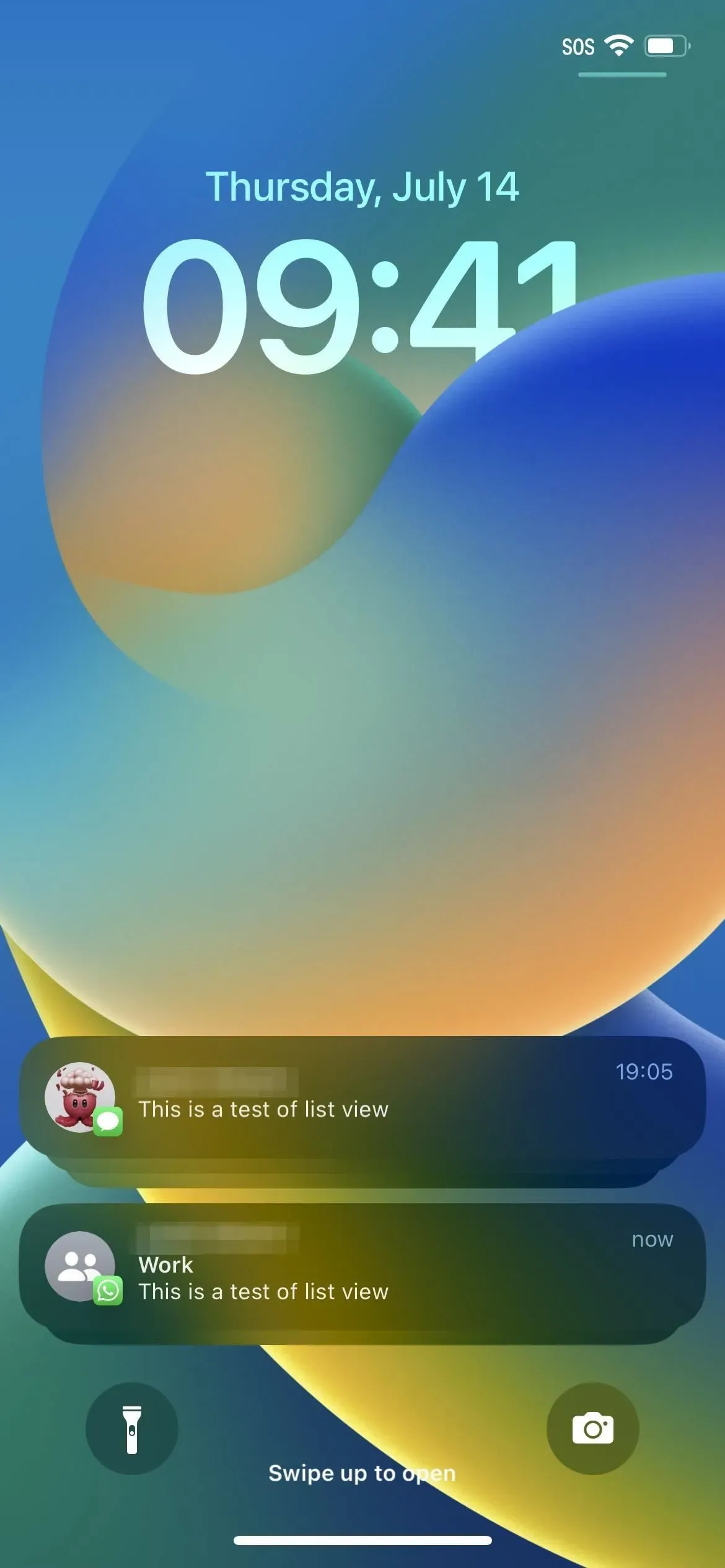
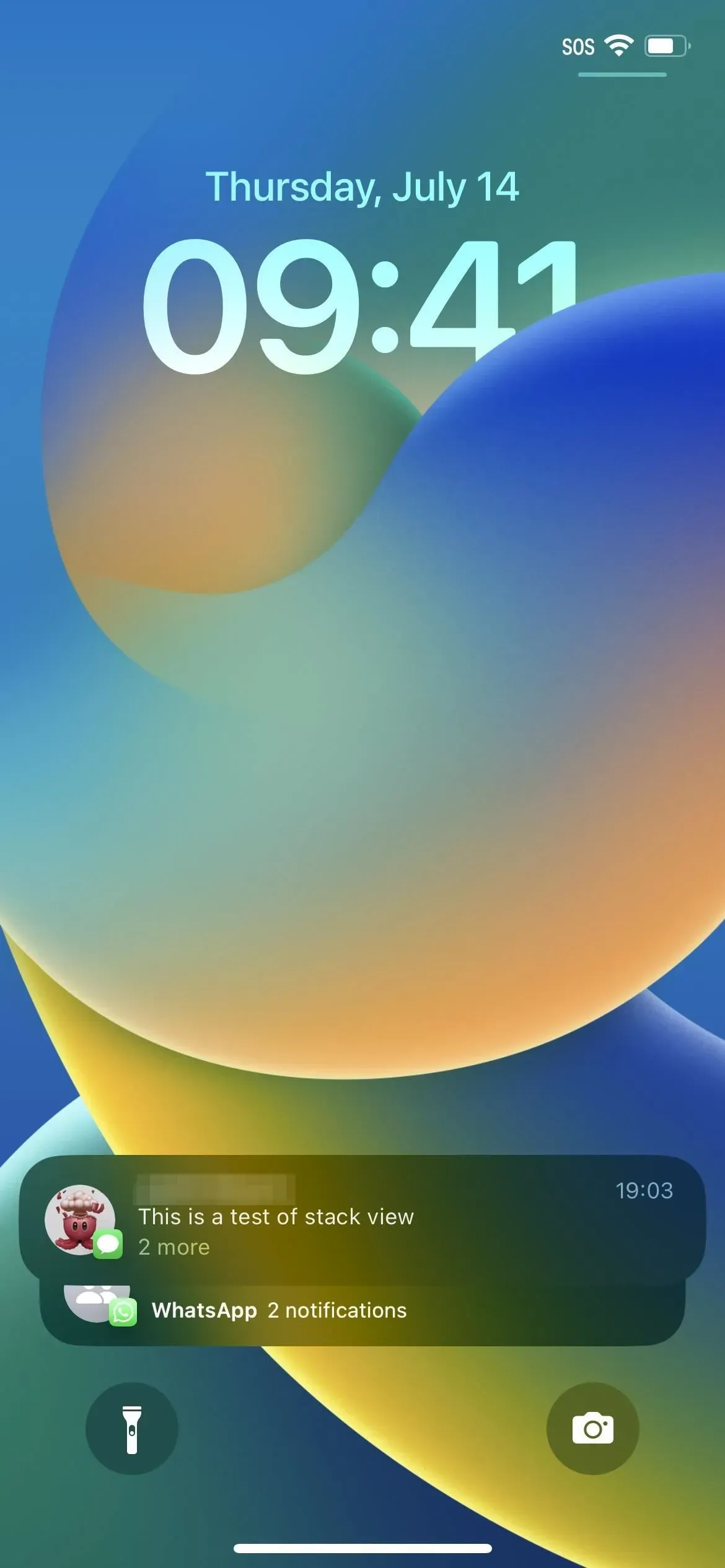
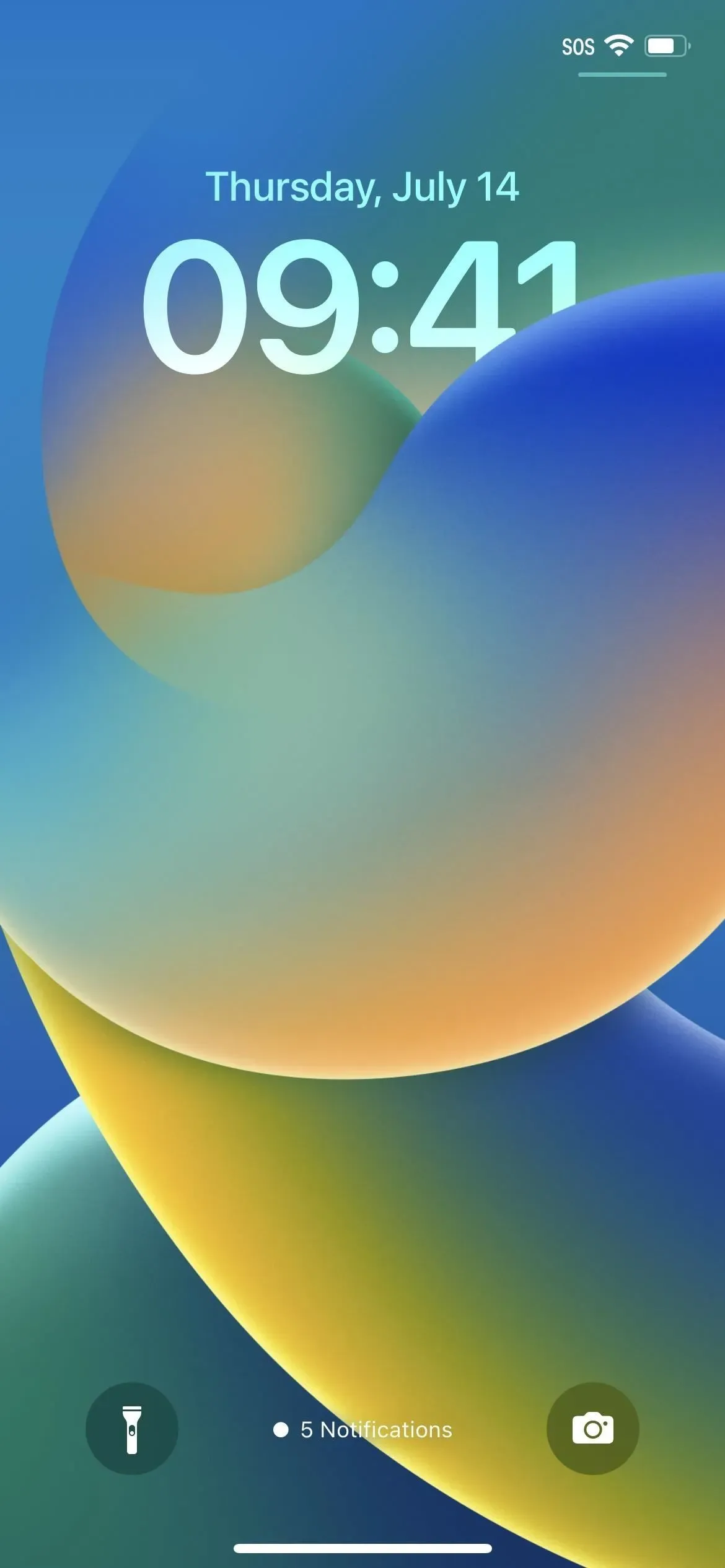
New styles of notifications on the lock screen, from left to right: list, stack and quantity.
Apple’s iOS 16 software is still in beta, so there are still a few shortcomings that need to be ironed out for the new notification display styles to work as they should. But the concept is quite simple, and below you can see how everything works once set up and running smoothly.
How to Change Notification Style in iOS 16
Go to Settings -> Notifications -> Display As and then select Counter, Stack, or List. Apple doesn’t give you any descriptions or examples for any of these options, but we’ll explain each one in more detail below.
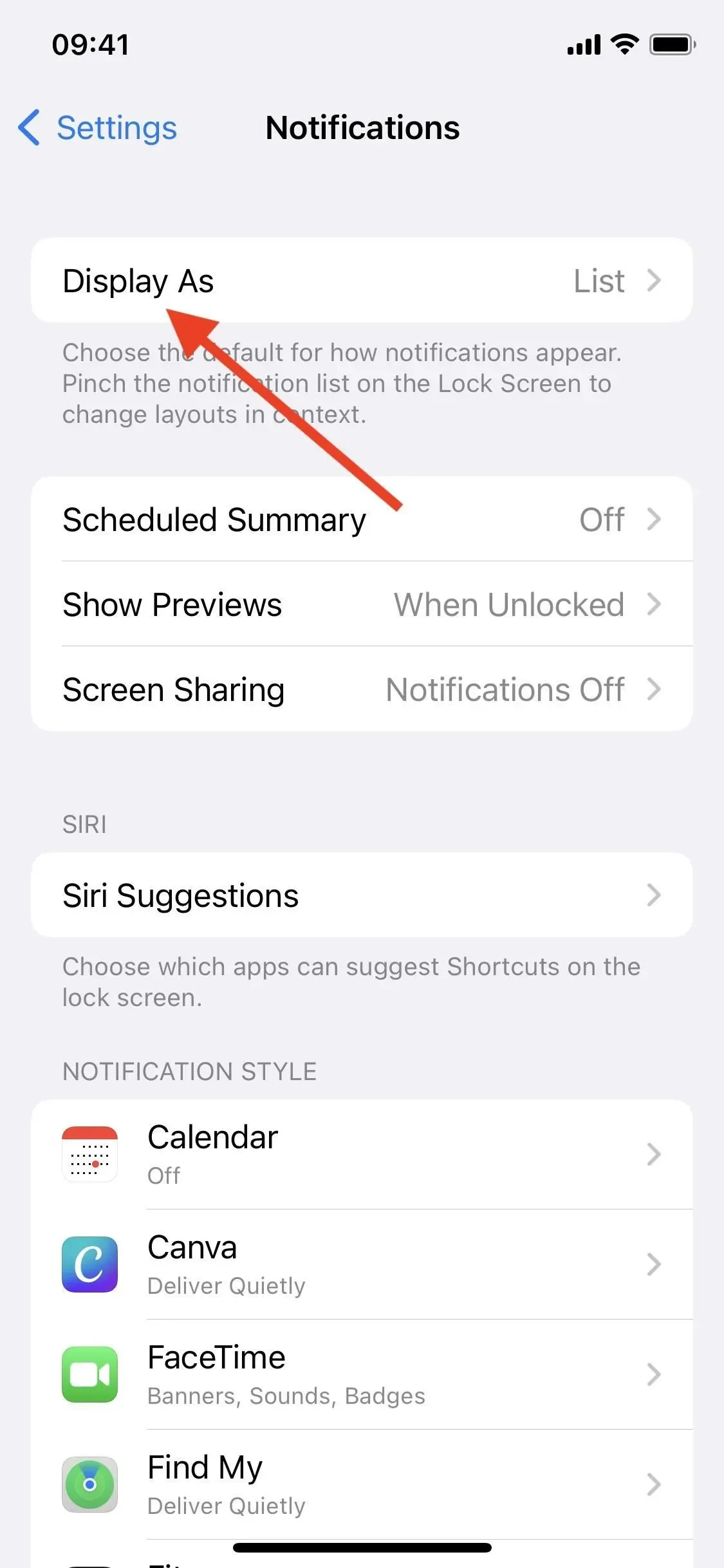
Notifications displayed as a list
The layout of the list is similar to how notifications appear on the iOS 15 lock screen. As you receive new notifications, you’ll see them as individual alerts or groups, one after the other. However, they appear at the bottom of the lock screen instead of at the top, so your wallpaper stays visible for as long as possible.
In the list view, you can swipe up on the lock screen as before to bring up old alerts in the Notification Center. If you want to change the list layout to a stack, you can pinch the screen or swipe down the list. (Note that if you swipe down from the top of the list, you can open Spotlight instead.)
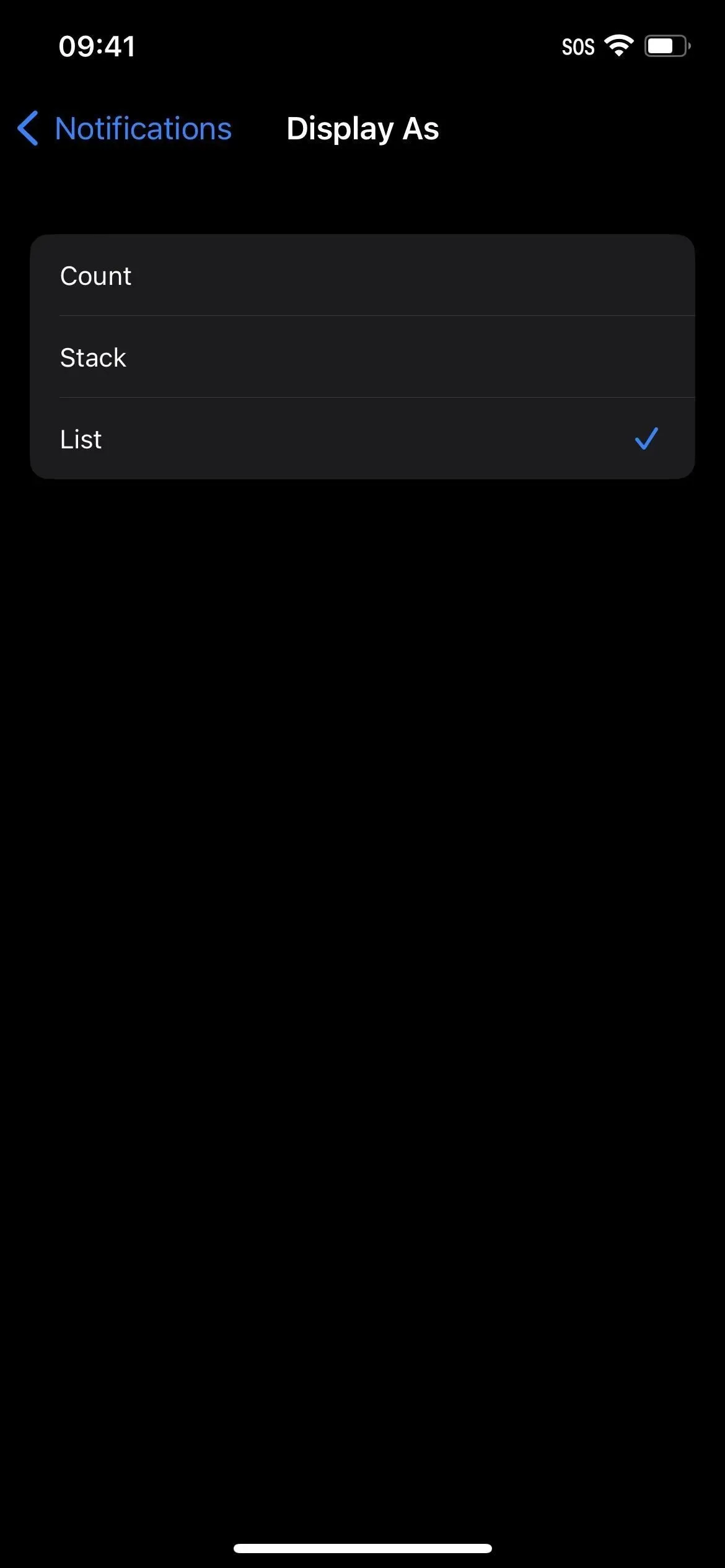
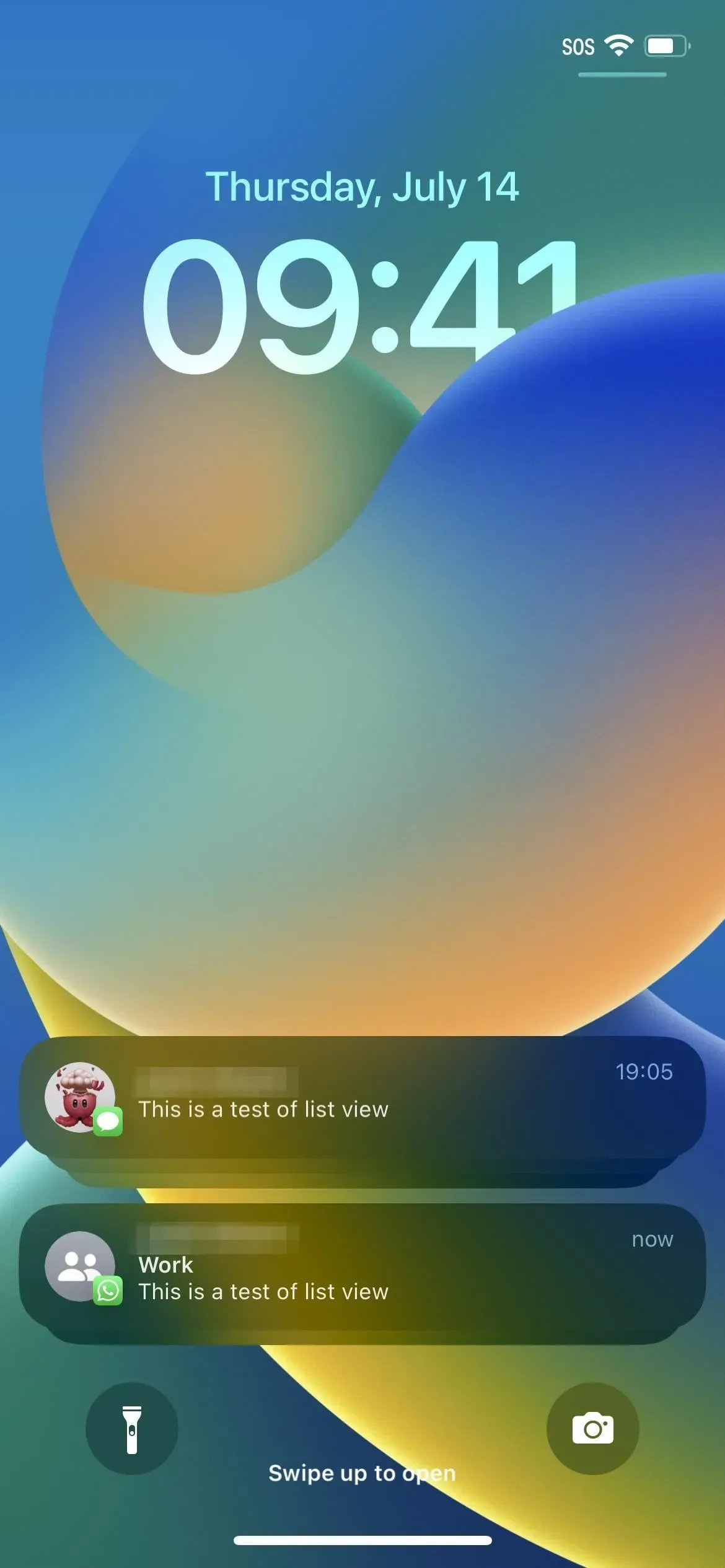
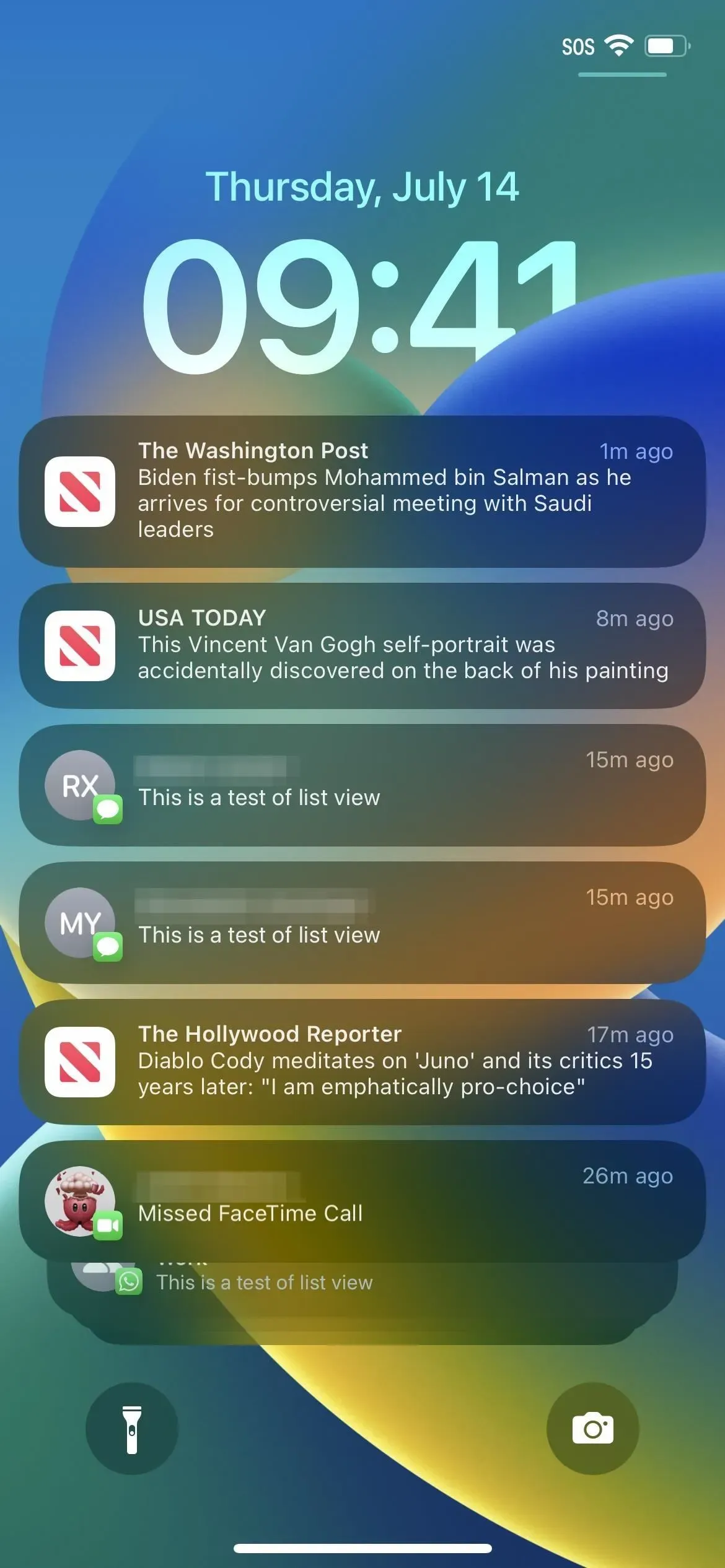
New list view with few notifications (center) and many (right).
Notifications are displayed in a stack
In stack view, your notifications will always be stacked on top of each other at the bottom of the lock screen. The most recent alert will be at the top and you can see part of the second alert. The third one on the list will show you how many more notifications there are and what apps they’re coming from.
This style is useful if you have a lot of incoming notifications but still want to see the most recent ones while reducing visual clutter.
In stack view, you can swipe up or spread your fingers on the lock screen to convert it to a list layout. You can then swipe up to open older notifications in the Notification Center. If you want to change the stack layout to counting style, you can pinch the screen or swipe down the stack. (Note that if you swipe down from the top of the stack, you can open Spotlight instead.)
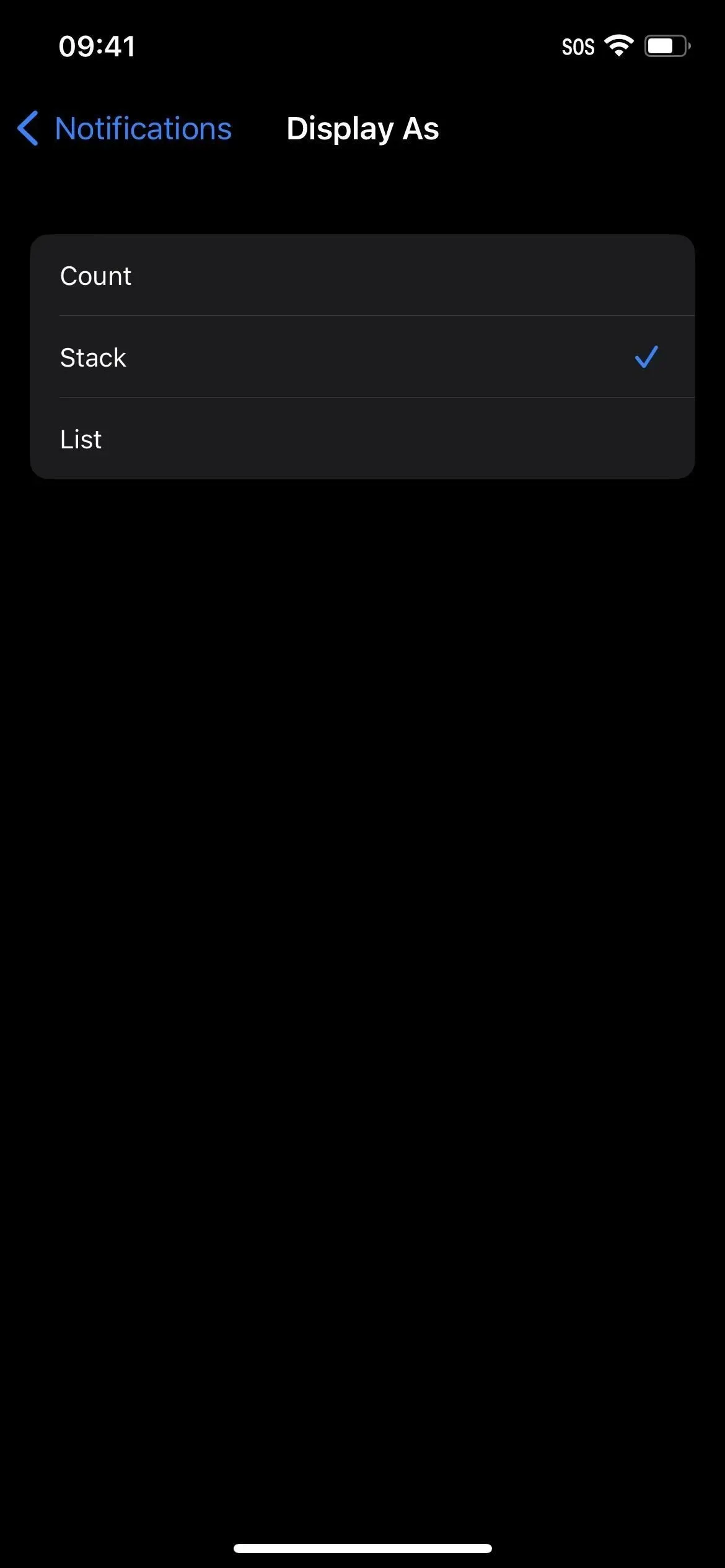
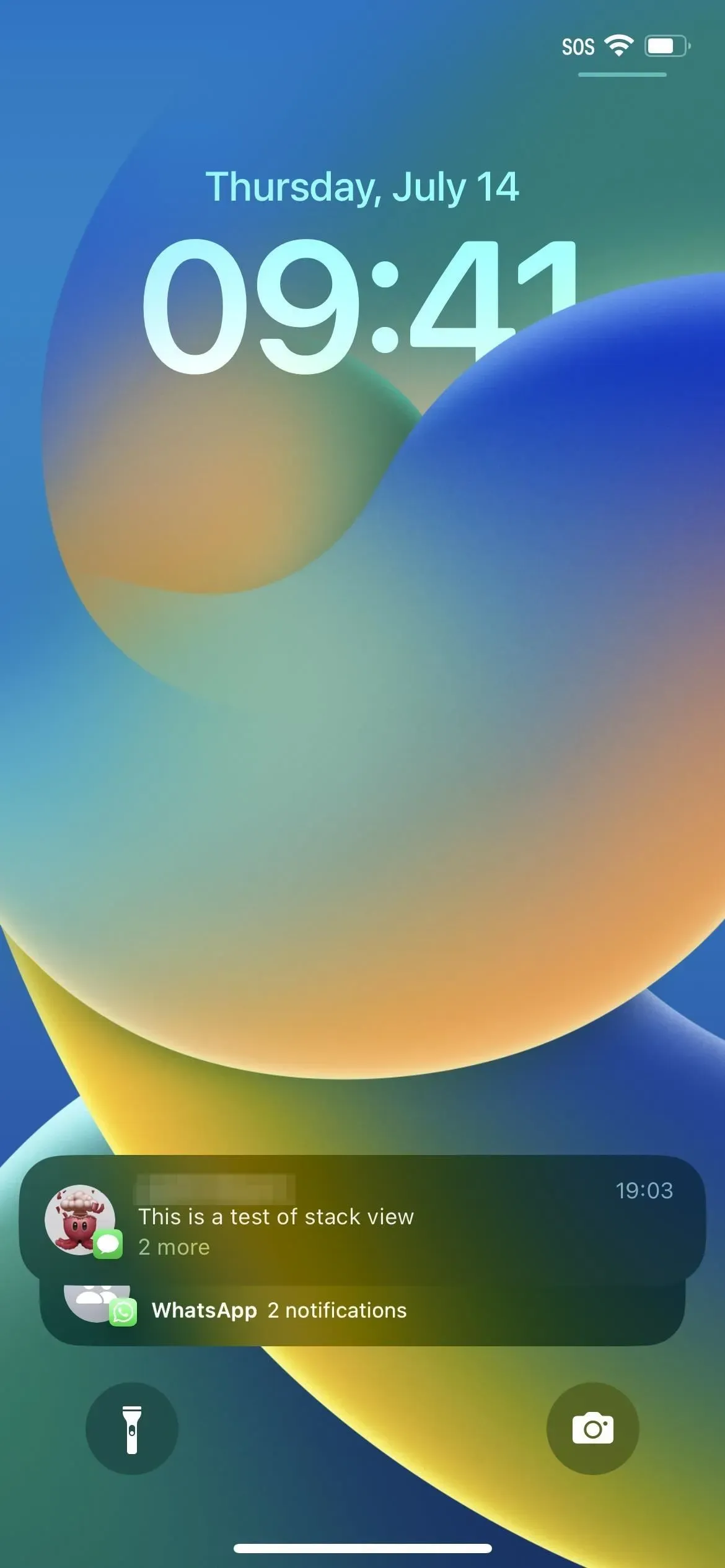
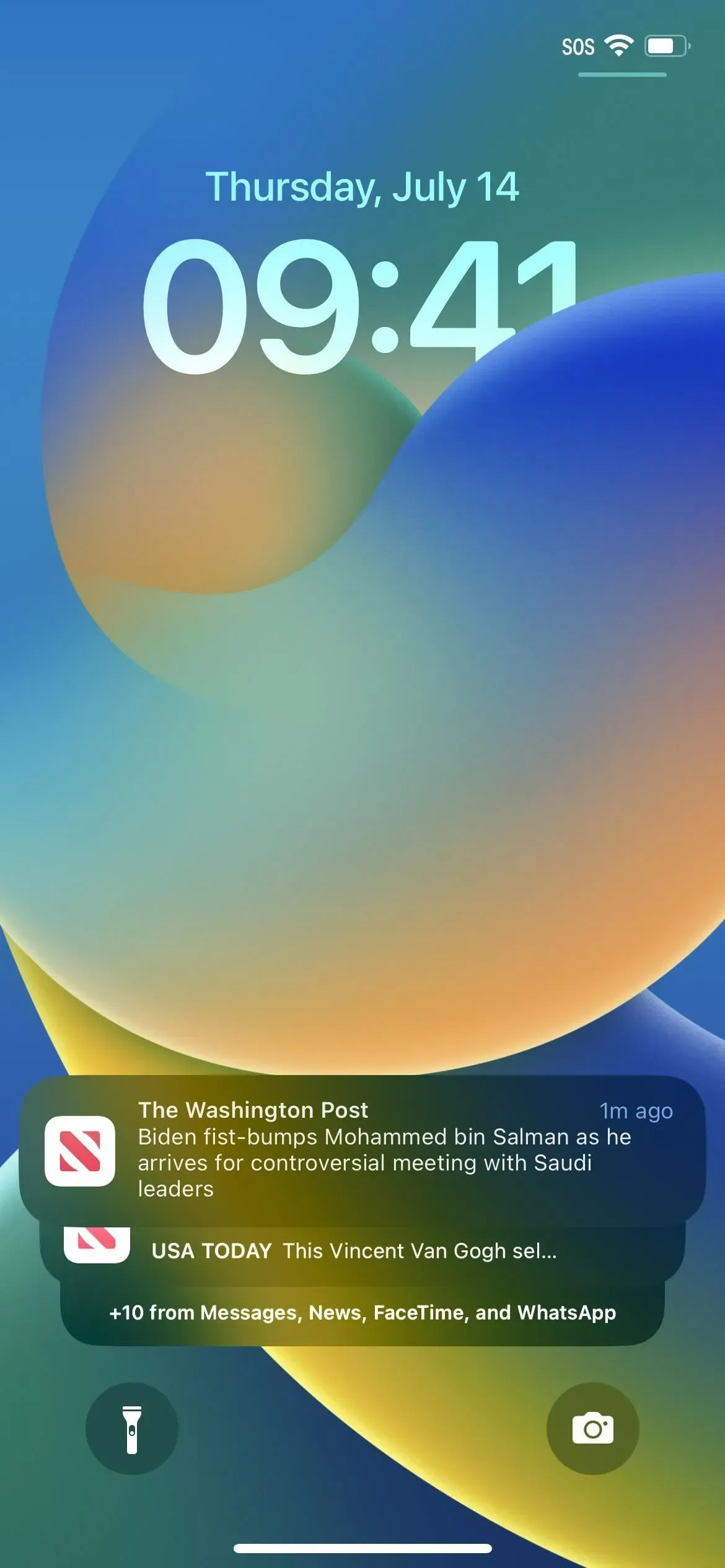
New stack view with few notifications (center) and many (right).
Notifications displayed as a quantity
Using the count style for lock screen notifications will show you the number of new alerts at the bottom of the lock screen, but not what they are. For example, you’ll see “3 notifications”if you have three recent notifications, or “15 notifications”if you have fifteen.
This style is best if you don’t care about seeing alerts immediately and prefer to enjoy a seamless wallpaper as much as possible.
In counting mode, you can swipe up or spread your fingers on the lock screen to move to a stack. You can then swipe up or spread your fingers to open the list. To open the Notification Center from the list, swipe up on the lock screen.
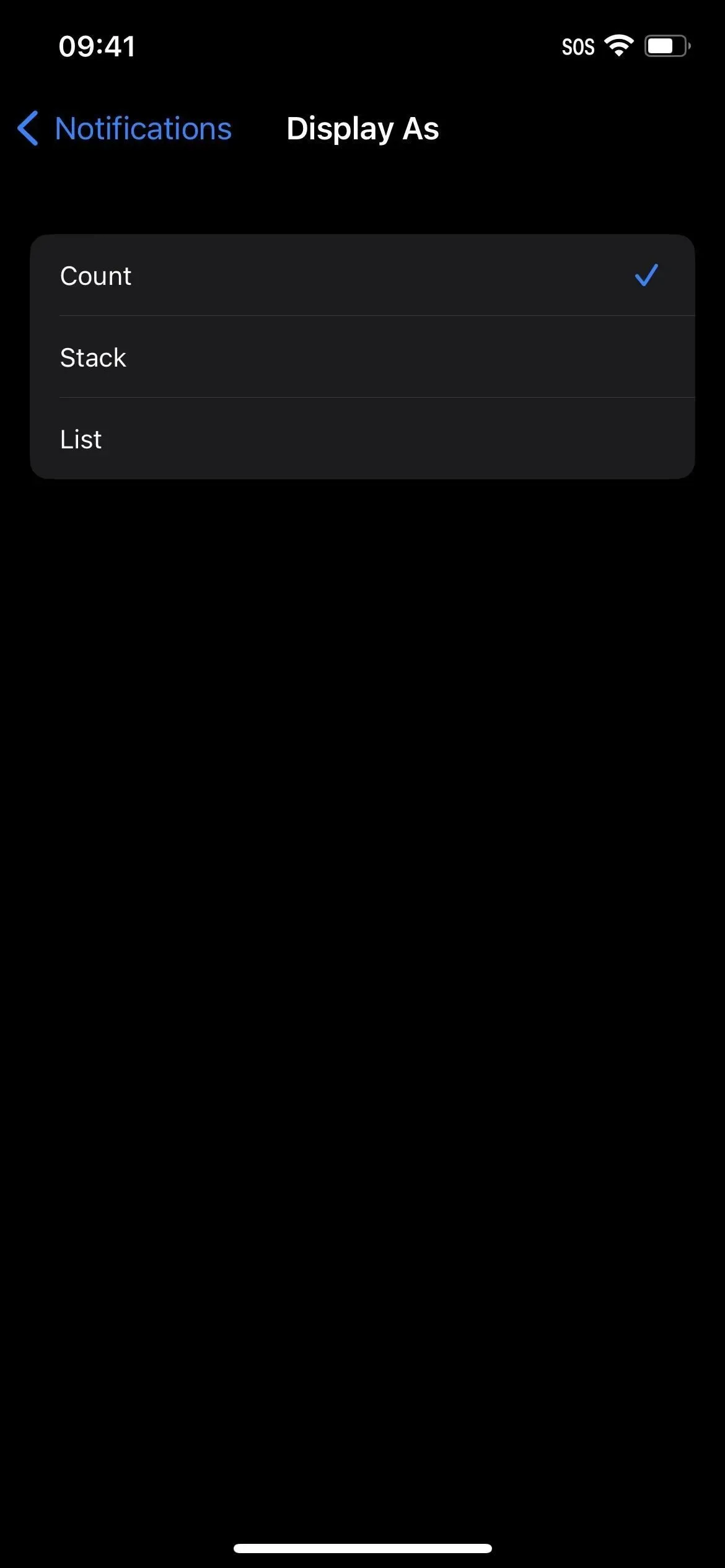
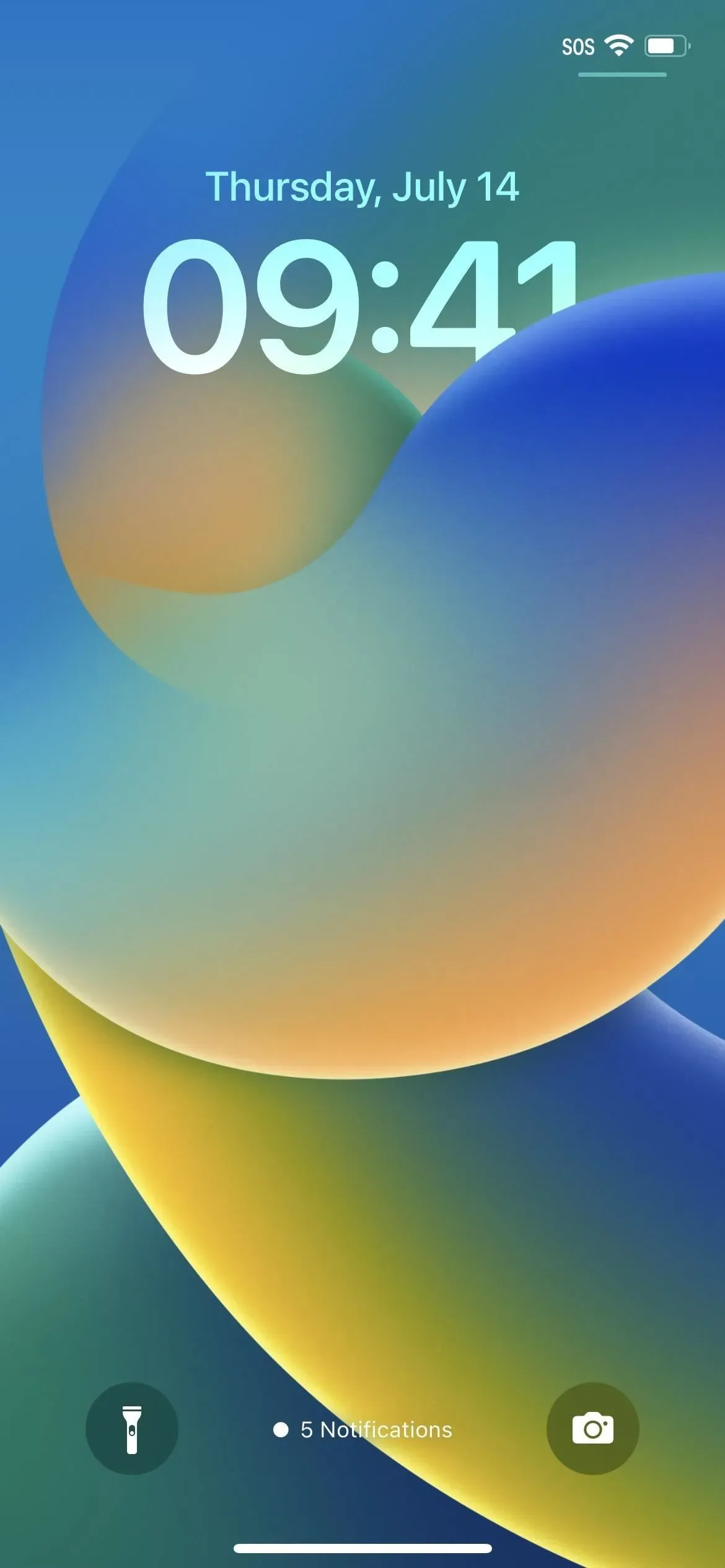
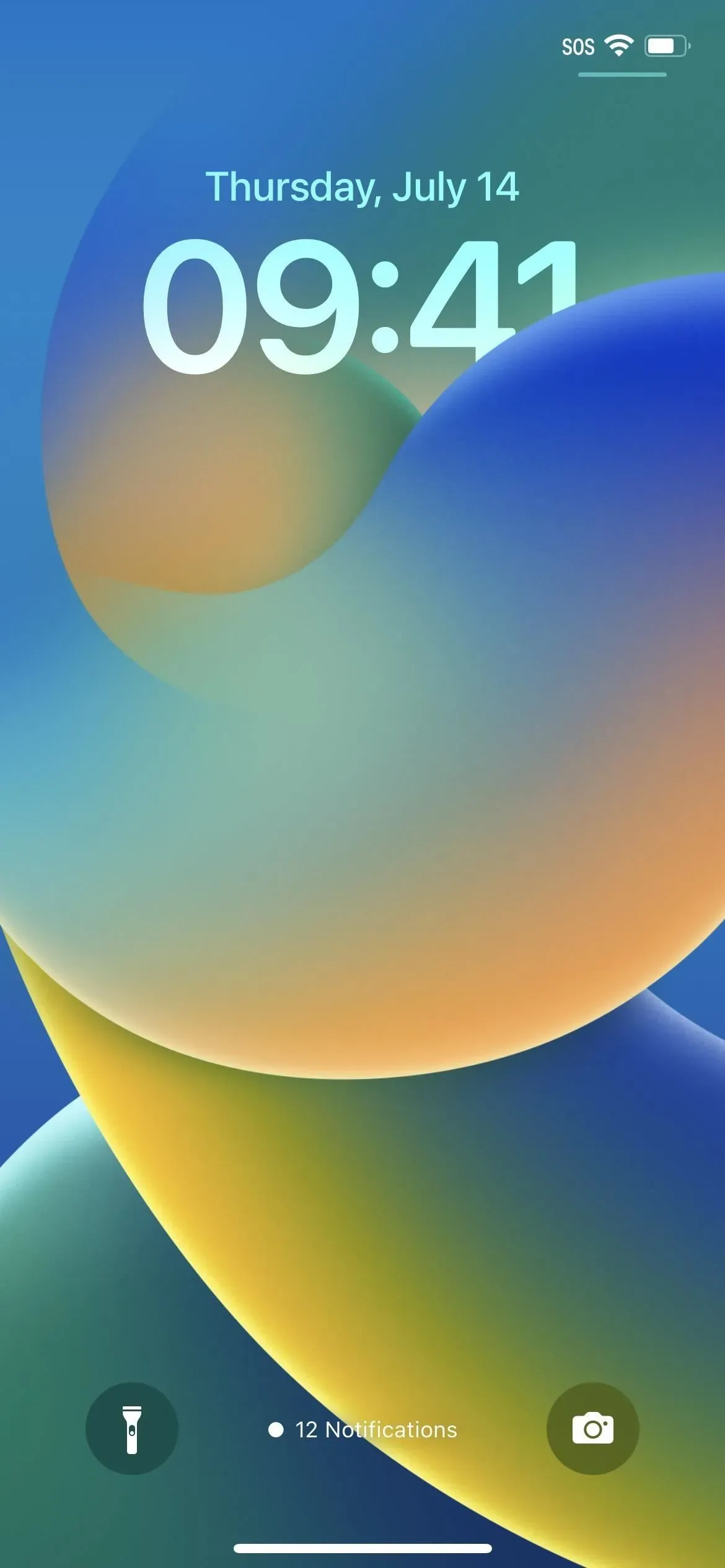
New counting view with multiple notifications (center) and more (right).
How to seamlessly switch between different views
As Apple states under the “Display As”menu in notification settings, you can “pinch the list of notifications on the lock screen to change layouts in context.”
As mentioned above, you click on the list view to collapse it to a stack, or from the stack view to switch to an account. You then compress the count to open the stack, then compress again to expand the list.
Also mentioned above, you can swipe to change layouts. Swiping up on the screen will change from counting to stack and list, and then the Notification Center will open. Similarly, you swipe down to move from the list to the stack for counting. However, you need to swipe down the actual list or stack. Otherwise, you’ll open Spotlight if you swipe from the top of the list or stack.
Whatever look you get on the lock screen after tapping or swiping will be the new default layout. The preference in “Settings”-> “Notifications”-> “Display as”will be changed accordingly.
While simple, it’s just as powerful an update to notifications as iOS 12’s Instant Setup and App Groups or iOS 15’s Scheduled Rollup.
Don’t forget to hide the preview
Hiding notification previews is not a new option, but it’s always good to mention it. Go to Settings -> Notifications -> Show Previews, then choose whether you want to always read content on the lock screen, only when you unlock with Face ID or Touch ID, or never. You can also open individual apps in notification settings to customize these privacy settings on a per-app basis. Hiding previews will provide the privacy you need depending on who can access your iPhone.
